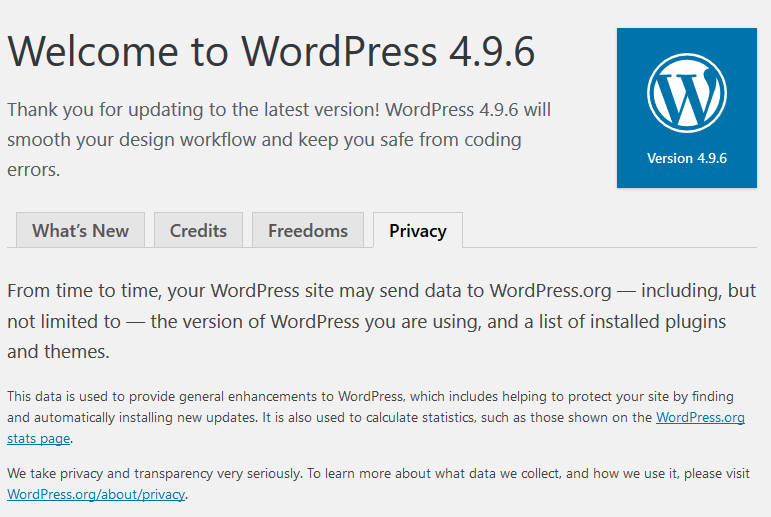WordPress community unveiled WordPress 4.9.6, updated with new privateness functions to aid website owners in complying with GDPR (General Data Regulation Privacy Regulation), taking the impact on May 25.
GDPR data protection policies will apply to all companies running within the EU, even though they do now not have any physical presence inside the EU. Any employer that shops or procedures personal statistics approximately European residents within or outdoor EU states will need to comply with GDPR.
To be compliant with GDPR, the companies may have to expose how they cope with the personal records of clients. On that front, WordPress will now permit directors to designate a privacy coverage page that includes all the insights approximately how the website online handles the statistics.

The privateness policy page may be proven on the login and registration pages. It can also be manually brought to other pages on the website.
The v4.9.6 may even include a detailed manual approximately how WordPress and its plugins manage the information. Administrators can replica and paste the manual or required details to their privateness coverage page.
The cease-users who add the comment on any WordPress web page may have the option of whether their name, electronic mail address, and internet site are stored in a cookie on their browser.
Another new function is that the customers can request the website administrator to export all their information from the website collected utilizing WordPress and the collaborating plugins. Users also can ask the administrator to erase all the private records.
The information export and erasure approach will include paintings for the registered customers and the customers who absolutely comment. An e-mail may be despatched to the website administrator while the request is made.
Additionally, the WordPress state-of-the-art model has been updated with new upkeep functions, including a filter out in the media library and PHP polyfills for plugins and themes. The TinyMCE has been updated to v4.7.11.
The websites that guide automatic historical past updates could be updated to the present day version soon. And the websites on version 4.6.3 will need to be up to date manually.

